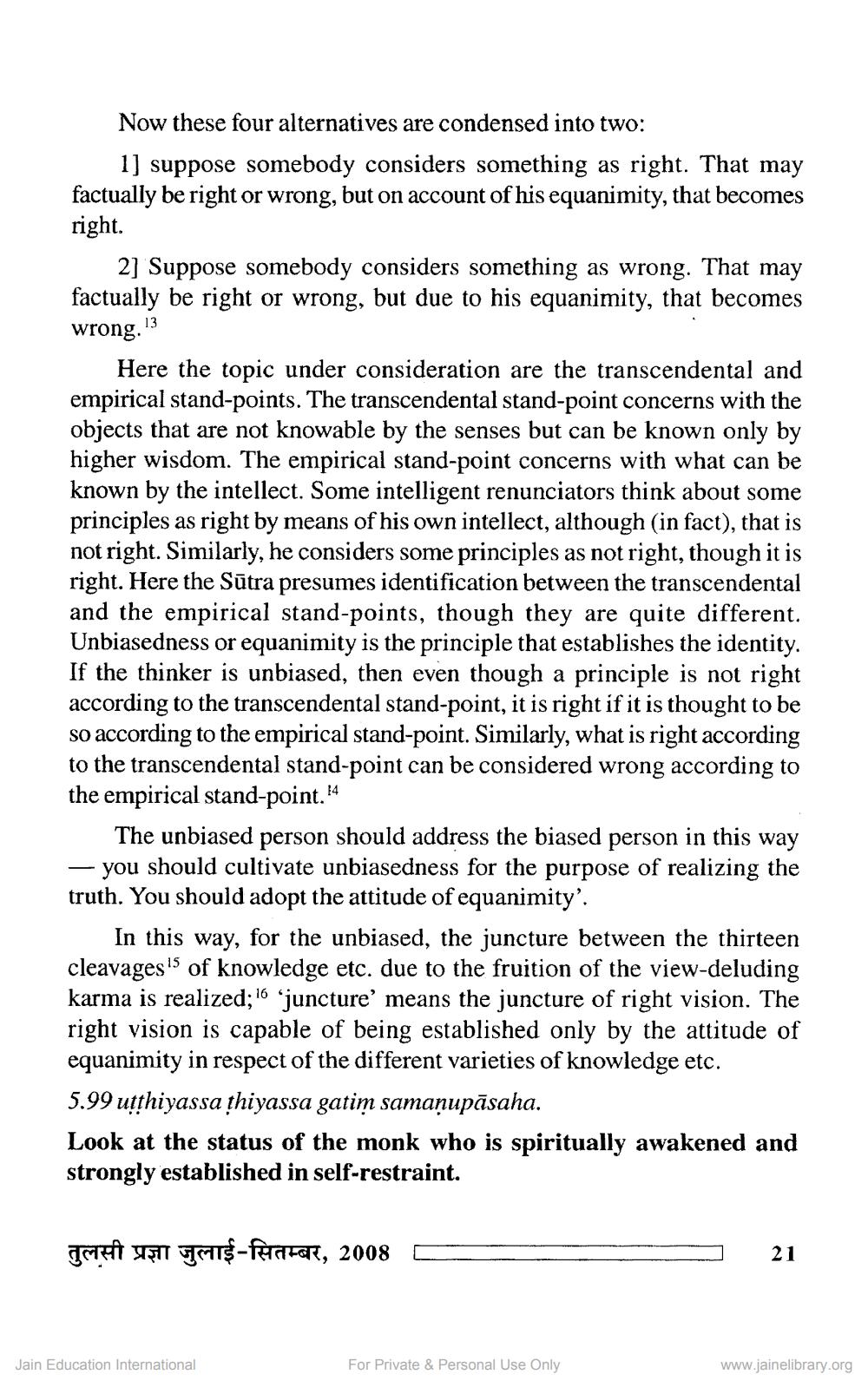________________
Now these four alternatives are condensed into two:
1] suppose somebody considers something as right. That may factually be right or wrong, but on account of his equanimity, that becomes right.
2] Suppose somebody considers something as wrong. That may factually be right or wrong, but due to his equanimity, that becomes wrong.
13
Here the topic under consideration are the transcendental and empirical stand-points. The transcendental stand-point concerns with the objects that are not knowable by the senses but can be known only by higher wisdom. The empirical stand-point concerns with what can be known by the intellect. Some intelligent renunciators think about some principles as right by means of his own intellect, although (in fact), that is not right. Similarly, he considers some principles as not right, though it is right. Here the Sūtra presumes identification between the transcendental and the empirical stand-points, though they are quite different. Unbiasedness or equanimity is the principle that establishes the identity. If the thinker is unbiased, then even though a principle is not right according to the transcendental stand-point, it is right if it is thought to be so according to the empirical stand-point. Similarly, what is right according to the transcendental stand-point can be considered wrong according to the empirical stand-point.14
The unbiased person should address the biased person in this way you should cultivate unbiasedness for the purpose of realizing the truth. You should adopt the attitude of equanimity'.
In this way, for the unbiased, the juncture between the thirteen cleavages of knowledge etc. due to the fruition of the view-deluding karma is realized; 16 'juncture' means the juncture of right vision. The right vision is capable of being established only by the attitude of equanimity in respect of the different varieties of knowledge etc.
5.99 utthiyassa thiyassa gatim samaṇupāsaha.
Look at the status of the monk who is spiritually awakened and strongly established in self-restraint.
तुलसी प्रज्ञा जुलाई-सितम्बर, 2008
Jain Education International
For Private & Personal Use Only
21
www.jainelibrary.org




